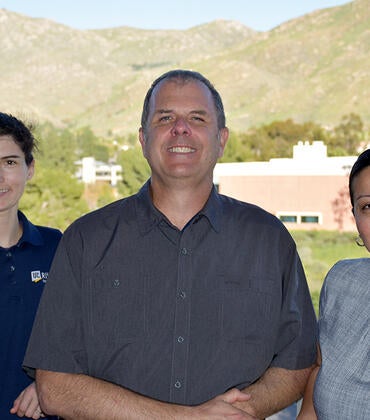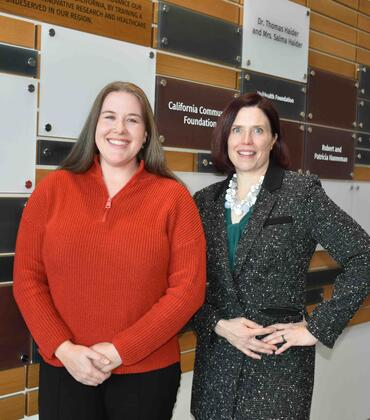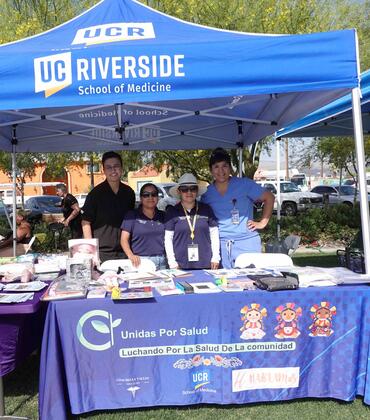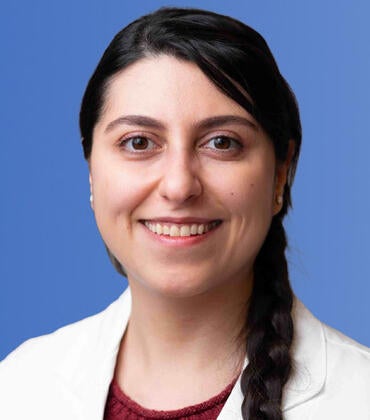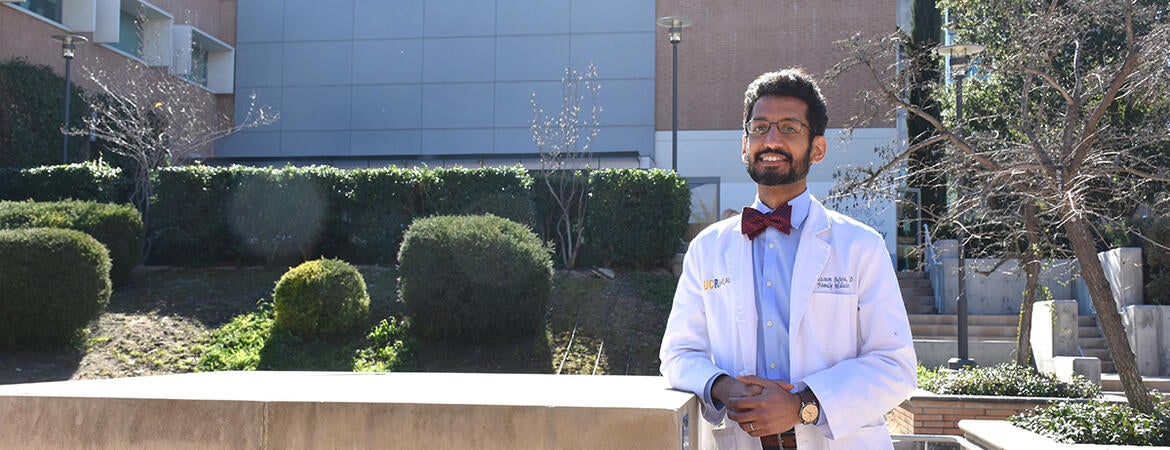
For UC Riverside’s LACE program director, Moazzum Bajwa, MD, MPH, working as a family medicine physician and advocate comes down to one simple question: “How do you use the skills and resources that you have to make an impact at the one-on-one level and at that larger community level in a meaningful way?”
This question has informed his entire professional life. Earlier in his career, Bajwa earned a master’s degree in public health and completed internships at community health centers before taking the unusual next step of teaching middle school. "Some part of me thought that being an educator was the best way to impact my community in a direct way,” he recalled. But while Bajwa enjoyed teaching, he said, "I knew that there was a bigger part of that public health piece that was missing.”
Pursuing his “first love” of public health, Bajwa decided to become a physician, but the journey wasn’t easy. It took him three years and dozens of applications to receive an acceptance to medical school. “There were certainly times when I thought, maybe what these admissions committees are telling me is true, maybe I'm not good enough,” he said. “I know now, on the other side of it, how dangerous that thinking is.”
Now an assistant clinical professor of medical sciences at UCR, Bajwa draws on his personal experiences to support students as they follow their own paths, whether traditional or a non-traditional one like his own, to become doctors. His yearly lecture for high school and college students in the Future Physician Leaders program (one of UCR's Pathway Programs) focuses on the discouragement he encountered while pursuing medical school.
“I now use those opportunities to show students that even if those things are happening, you still have control over the narratives of what your life story is and how it's going to play out,” Bajwa said. “Getting it from a counselor is one thing, but hearing from a physician in practice, who's been through the same trials and tribulations, I think it just lands a little bit differently. And that's something that I know I would have appreciated a lot when I was in that position.”
Creating student leaders who help the community
One of Bajwa’s main roles at UCR, as director of the Longitudinal Ambulatory Care Experience (LACE), combines his passion for helping students develop their identity and skills as a physician with his dedication to serving the community. The program, a core part of the UCR School of Medicine curriculum, pairs first- through third-year medical students with primary care physicians in the region to provide hands-on experience, connect students to the community as they provide long-term care to local patients, and foster mentorship.
“A big part of LACE is being accountable, not just to our patients in our community, but to our students as well,” said Bajwa, who participated in LACE for three years as a preceptor before becoming the program’s director. “They've put a lot of time and effort into becoming medical students, becoming future physicians. And I want them to know that, in this part of the curriculum, we are trying to meet that mission by allowing them to become the type of people that they sought out to be as they wrote their personal statements and identified the parts of their values that were most important to them. LACE is their opportunity to explore that in a meaningful way.”
LACE’s focus on the community also furthers the SOM’s mission. “As a community-based medical school in an underserved area, having an integrated longitudinal clerkship focused on primary care is huge,” said Bajwa. “My ultimate goal is to have future physicians who understand what it means not just to care for a patient, one on one in a clinical setting, but who understand the structural components of their health, outside of the clinic walls in the community, and feel comfortable that they have the skills to advocate for or intervene on behalf of some of those structural determinants of health. And that's a big component of what the LACE curriculum covers.”
He said the program is also distinctive in that it integrates the clerkship and medical school curriculum across students’ first three years. SOM Director of Scholarly Activities Daniel Novak, PhD, agreed. "I think Dr. Bajwa's vision for LACE is really unique in that, when our students are out at the sites getting to experience what it's like to be a doctor or be in a medical environment, they get to do all this stuff authentically,” he said. Rather than setting up scenarios for students to practice with patients, he explained, students work directly with patients with guidance and feedback from a doctor.
LACE, which Bajwa runs alongside the program's associate director, Patty Walker, has seen success. “The feedback we get from preceptors is, when they get students from other schools in their third year versus UCR students in their third year, UCR students can see the whole story with patients much better,” Bajwa said.
Bajwa also works with other programs focused on serving and advocating for the community all while enabling students to contribute, too. As the faculty advisor for UCR’s Inland Empire Street Medicine program, he guides students in working with unhoused populations while helping them understand the stigmatizing myths present around marginalized groups.
He said he loves that the program is run almost entirely by student volunteers, giving them the opportunity to gain leadership experience while providing high-quality care to unhoused patients. “The philosophy behind street medicine, as a nationwide movement, is doing what you can, where you can, with who you can,” he said. “That's something that I've seen grow over the last three years into a really high-functioning, student-run organization. And I'm just proud to be part of that.”
Balancing patients and community initiatives while pursuing health justice
Bajwa has worked to help patients and the community in other direct ways, as well. Observing that his patients were struggling with high rates of food insecurity, he partnered with the local public health department and the nonprofit organization Feeding America Riverside to schedule monthly food box deliveries to his clinic, the RUHS Moreno Valley Community Health Center. “Over the last year, we've distributed close to 1,000 food boxes to our patients and their families,” he said. “It's been great, not only for the patients, but it's also been a really tremendous boost to the morale of our clinic staff to be able to see that direct community impact for our most vulnerable patients.”
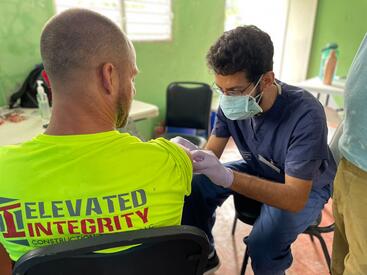
In all his work with students and on community initiatives, Bajwa still prioritizes his individual patients. “That very precious one-on-one patient interaction is what I hold most sacred,” he said. But he also believes it’s vital to positively impact the greater community, and to help his students do the same. “I struggled a lot both as a student and a resident with finding my place and finding that balance,” he said. “Now that I’ve found it, I desperately want to be able to share that with students who may be going through that same difficulty, and help them connect those larger themes with their individual patients.”
Bajwa said he feels lucky to work alongside colleagues who share his priorities. “When I come to work each day at RUHS (Riverside University Health System) or UCR, I know that the people I'm working with are generally there for the same reasons that I am, because they care deeply about the patient population that we're working with, they have an understanding of the structural violence that these communities have been victim of for many years, and they feel strongly that some part of their personal identity can impact that needle towards health justice in a positive way,” he said.
“That doesn't happen by accident,” Bajwa added. “It happens because they feel that we're all doing this for the right reason. And that's a pretty special thing.”
